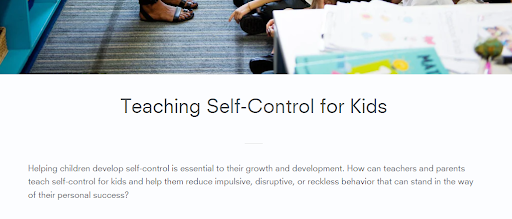
Intrinsic Motivation in the Classroom: 3 Key Insights
Students typically receive praise for scoring high marks on assignments and assessments; this framework tends to place extensive value on innate intellectual ability. However, this rewards system fails to acknowledge the immense and equally powerful weight that having drive affords children in the classroom and well beyond.
The ability to be self-motivated allows students not to rely on external sources of validation in order to strive for stellar academic performance. When students try to do well in school for their own benefit, it builds confidence and a self-starter attitude. It dissolves a reliance on a need for external reassurance from educators and parents that will extend well beyond their years in conventional educational settings. Intrinsic motivation is an equal, if not a more significant, indicator of success in school, careers, relationships, etc. than instinctive intelligence. With a true drive to learn and grow, students can tackle any challenge put in front of them, academic or otherwise. By focusing on developing key character traits in children and thus boosting their awareness of their own significance, educators embed intrinsic motivation in the classroom, giving students the capacity to stimulate their own learning.
Encourage students to be responsible
Teaching students to adopt a personal sense of responsibility for themselves, loved ones and peers encourages positive academic performance. Doing well in school is one way to gain a parent’s or educator’s trust, and children learn that with trust comes independence. Establishing a sense of pride in responsibility is self-reinforcing for children and encourages an inner drive to do well in school independent of grades and feedback they may receive.
Encourage acts of service
 Furthermore, engaging students in acts of service for others illustrates how doing a kindness for someone else can elevate a sense of self-esteem and purpose. When students recognize the positive effects of treating others well, this cements the importance of responsibility towards those counting on them. Teaching students the value of acts of service fosters an intention to do good, not only for themselves, but the world around them, reciprocally strengthening their sense of responsibility to excel academically.
Furthermore, engaging students in acts of service for others illustrates how doing a kindness for someone else can elevate a sense of self-esteem and purpose. When students recognize the positive effects of treating others well, this cements the importance of responsibility towards those counting on them. Teaching students the value of acts of service fosters an intention to do good, not only for themselves, but the world around them, reciprocally strengthening their sense of responsibility to excel academically. Encourage self-control

For students to attain self-driven and sustained motivation in the classroom, they must recognize that their ability to progress is within the bounds of their own control. When students realize the agency they hold over their behavior in school, this, in turn, grants them a sense of autonomy over their lives. Teaching children self-control equips them with the tools to direct their future. Students recognize the autonomous power within their grasp with the realization that they can and will succeed if they are able to control their own emotions and motivations.
Responsibility, acts of service, and self-control are just a handful of character strengths that allow students to develop the independence and emotional intelligence they need to be self-driven in an academic setting. By focusing on developing these abilities to lift themselves and others up around them, a sense of purpose is embedded in the students that successfully motivates students to learn while acknowledging the value in determination and perseverance. When choosing motivational strategies in the classroom, promoting these character traits in developing children ignites the spark to achieve academic success and lays the foundation for cultivating multi-dimensional, emotionally-aware human beings.






Add a comment